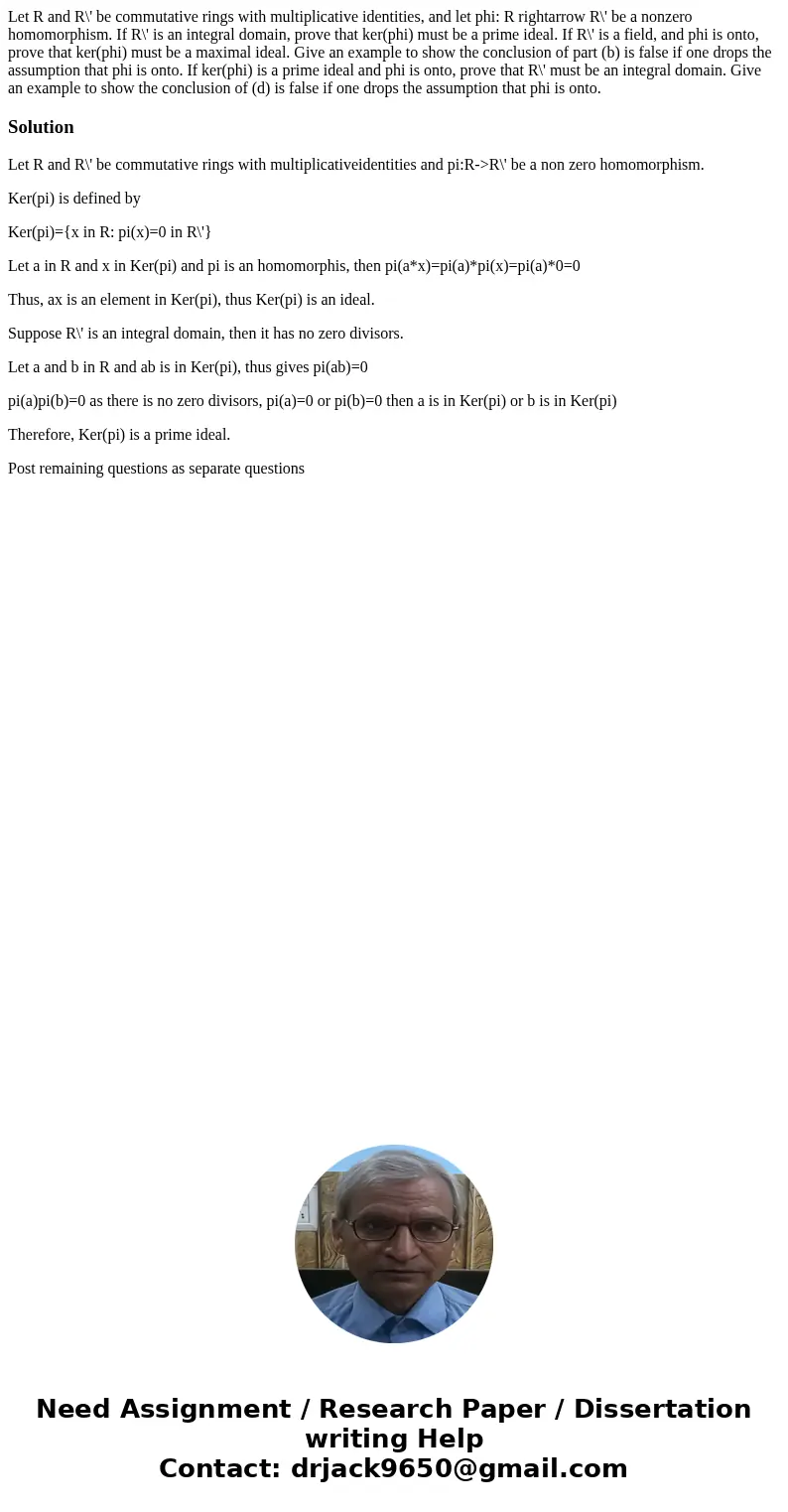Let R and R be commutative rings with multiplicative identit
Let R and R\' be commutative rings with multiplicative identities, and let phi: R rightarrow R\' be a nonzero homomorphism. If R\' is an integral domain, prove that ker(phi) must be a prime ideal. If R\' is a field, and phi is onto, prove that ker(phi) must be a maximal ideal. Give an example to show the conclusion of part (b) is false if one drops the assumption that phi is onto. If ker(phi) is a prime ideal and phi is onto, prove that R\' must be an integral domain. Give an example to show the conclusion of (d) is false if one drops the assumption that phi is onto.
Solution
Let R and R\' be commutative rings with multiplicativeidentities and pi:R->R\' be a non zero homomorphism.
Ker(pi) is defined by
Ker(pi)={x in R: pi(x)=0 in R\'}
Let a in R and x in Ker(pi) and pi is an homomorphis, then pi(a*x)=pi(a)*pi(x)=pi(a)*0=0
Thus, ax is an element in Ker(pi), thus Ker(pi) is an ideal.
Suppose R\' is an integral domain, then it has no zero divisors.
Let a and b in R and ab is in Ker(pi), thus gives pi(ab)=0
pi(a)pi(b)=0 as there is no zero divisors, pi(a)=0 or pi(b)=0 then a is in Ker(pi) or b is in Ker(pi)
Therefore, Ker(pi) is a prime ideal.
Post remaining questions as separate questions

 Homework Sourse
Homework Sourse